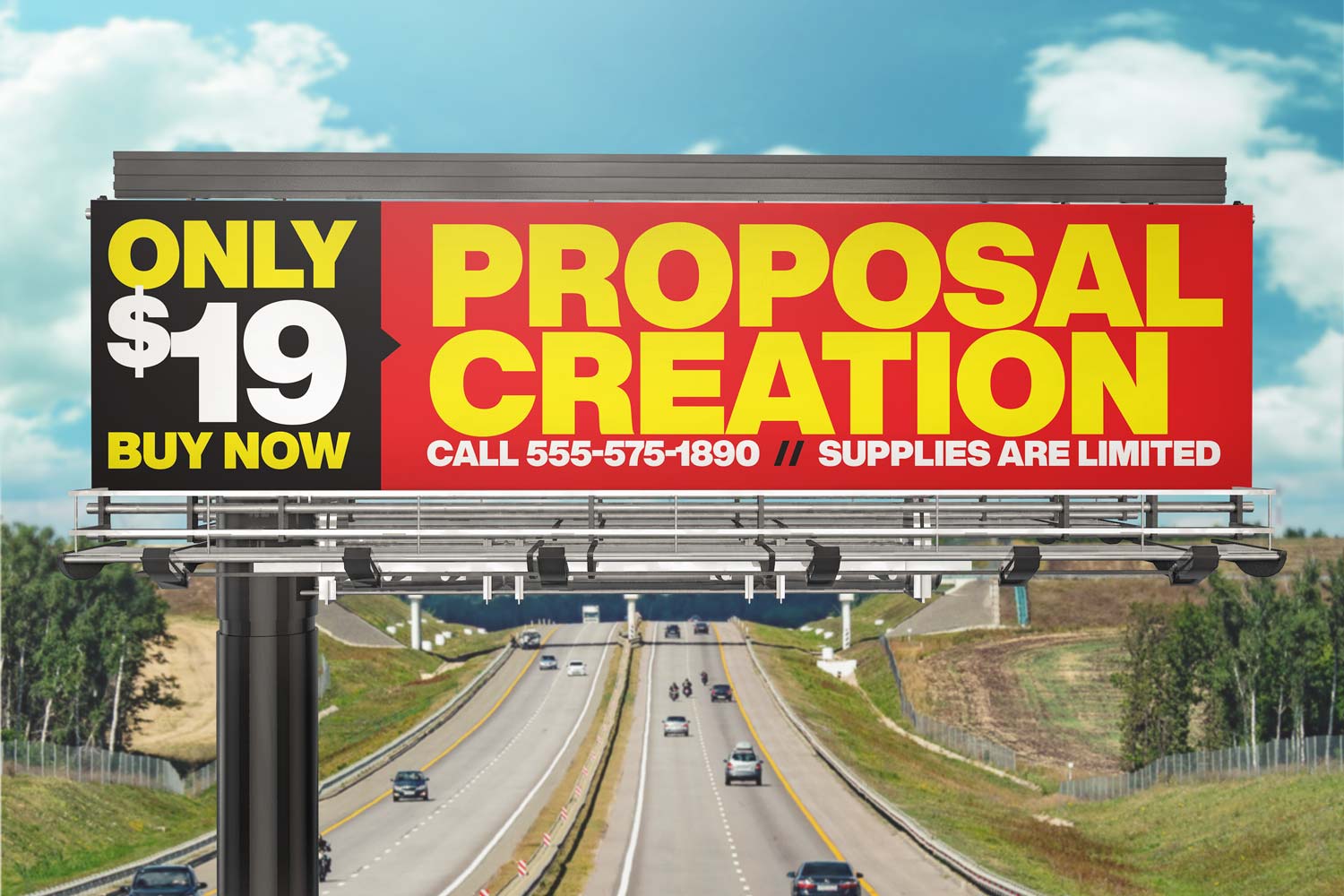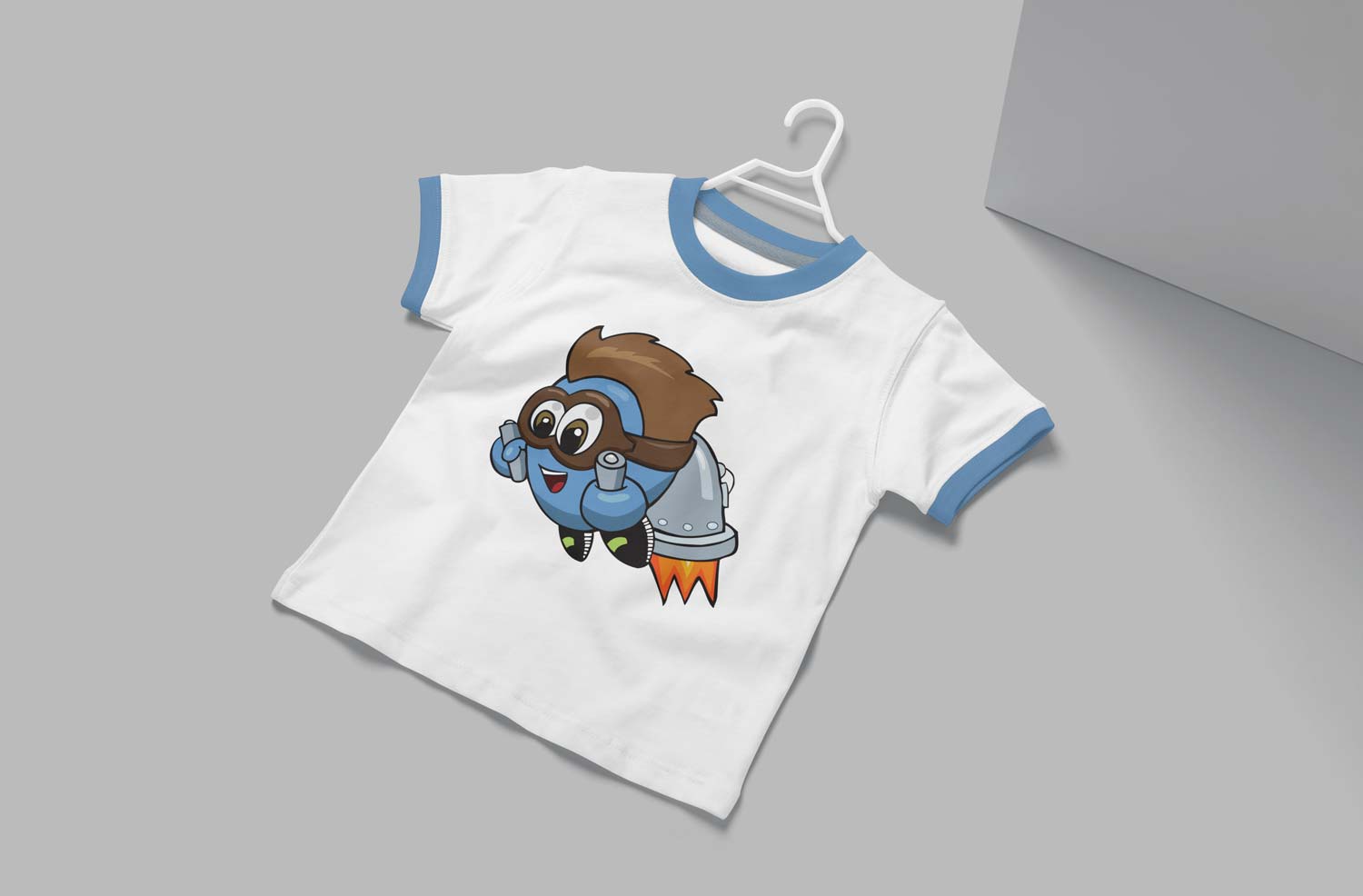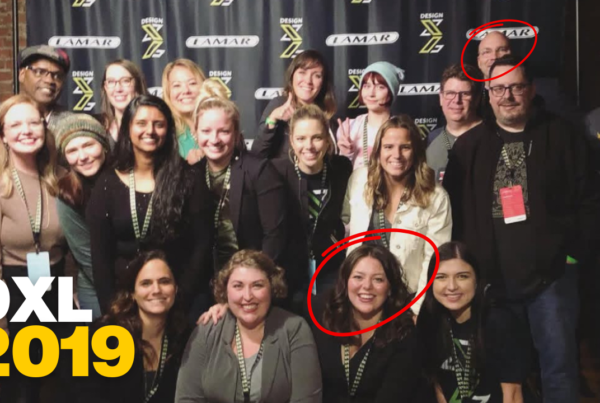Proposals take freelancers and creative agency owners time to create, no doubt about it. Sure, you can speed up the process by repurposing past proposals and using templates, but most often a proposal requires time to explore and craft custom ideas.
Since time is required to craft a custom proposal, it begs the question, “Can I charge my client a nominal for proposal creation? And if they decide to move forward I’ll apply it as a credit to the overall project fee.” I was recently asked this very question. Let’s explore how it might play out in a real sales scenario.

What Is a Proposal?
Let’s clarify what a proposal is in the context of this article to ensure we are all discussing the same thing.
A proposal IS your plan to solve the client’s problem. Generally speaking, it outlines the services you will perform, the deliverables, your price and timeline.
A proposal IS NOT the solution to the client’s problem. It does not include a marketing plan, messaging, design concepts etc. It may include a description of your process to create those things, but the actual results of
Most Creatives Do Not Charge for Proposals
I’ve been in this creative agency game for a long, long time, more than 25 years. I can tell you that the industry standard is to NOT charge for proposals. Sure, you may hear of a few creative agencies who charge for proposals, but the vast majority do not.
Therefore, if you charge for a proposal and your competitors do not, you may already be selected out of the engagement before the opportunity even starts.
The client will think, “Hmmm…none of the other agencies are charging for a proposal, I’m not going to pay for someone to make a proposal when everyone else is creating a proposal for free.”
Charge for Strategy Work
If your client’s RFP (request for proposal) requires that you submit ideas, designs etc. to solve their business problem, you should enter into a paid strategy engagement.
Your client’s RFP may have a request to:
- Submit marketing plans
- Submit design concepts
Personally, I think it is tacky and bad business for a client to expect you to work for free to potential land a project. I’m never a fan of this type of client request.
But if it happens, I would reply to the client with something like this, “Thank you for your interest in working with us. We don’t do concept work for clients as we have found that for us to create successful work for our clients we need to follow our creative process (rather than just jumping to design). Our process typically includes a strategy workshop (where we discuss your business and needs in-depth). We follow the workshop with research to understand your customers, competitors and industry. Only then can we create a marketing plan and design concepts that will be successful in solving your problem. We would love to engage in this strategic work for you. Would you like us to submit a proposal for the strategy work? After we execute on that, we can provide you with a proposal for the design and marketing work you need.”
Admittedly, your proposal will not fulfill the client’s request to provide them with actual work prior to the paid engagement, however I am a big advocate for getting paid for ideas. Don’t just give them to the client for free in order to land the project.
If your competitors decide to provide strategy work and designs in an effort to land the project, let them waste their time doing so. I prefer you get paid for that work. Use the script.
We Provided Free Designs in Our Proposal Three Times, Here Is What Happened
I didn’t follow the above advice three times during my agency run. Here is what happened with each of them.
Example One: We created concept designs for the website of a major card game (kind of like Magic: The Gathering, but not quite as big). It was during the recession and they had a big budget. We were excited and needed the work. We created some AMAZING design comps and flew to San Diego to pitch our designs and solutions. We walked into their offices and it was a ghost town. Empty desk after empty desk. It turned out that their business was on the brink of failure and they were fishing for free ideas to solve it. We didn’t land the work. In fact, I don’t think anyone did and their business closed soon after.

These are our agency’s design concepts for the card game site back in 2010. They were super slick! But no dice. (Design comps modified to hide the client’s brand name.)
Example Two: An online education platform for kids wanted to create a virtual world for kids. This was right up our alley as we had just come off of a redesign of Club Penguin for Disney, a virtual world for Tropicana as well as a few other virtual worlds from my “pre-agency” background. We designed some amazing comps for the client in an effort to land the work. Guess what? They didn’t choose us. In fact they didn’t choose anyone. But also guess what? A few months later they launched some changes to their brand and they look strikingly similar to the design concepts we pitched.

This is one of our character design concepts for the virtual kids world. Nice work, but didn’t win.
Example Three: The team from a major kids movie franchise reached out to us to create a virtual world. We jumped right into creating some insanely good concept designs and illustrations…I mean super good. Our problem was that we jumped right in. No strategy workshop with the client, minimal research, just jumped to design. Guess what? We weren’t chosen because our designs (although great) weren’t in the right style (something we would have known had we followed our standard process).

Character designs for the movie franchise virtual world. I really wish we had won this one.

Our proposal included tons of cool sketches for the environments too.
In fact, I don’t think I’ve ever won a project in which our proposal included design work. Without taking the time to talk with the client, research, mood board, concept sketch etc. it is nearly impossible to land on the right design…or marketing plan…or website concept or any other creative deliverable.
Don’t let your client rush the process by asking for free work in the proposal phase. It is ok to slow them down and enter paid strategy engagement. The best results come from the right process.
Demand Earns Freedom to Charge for Whatever You Choose
All of this being said, if your demand is high (meaning you have tons of clients wanting to work with you), then you are free to run your business how you choose. In this situation, charging clients for proposals may serve as a nice gatekeeper to slow down the flow and help you land only clients who are fully committed to working with you. But as for it being the industry norm, it is not.












